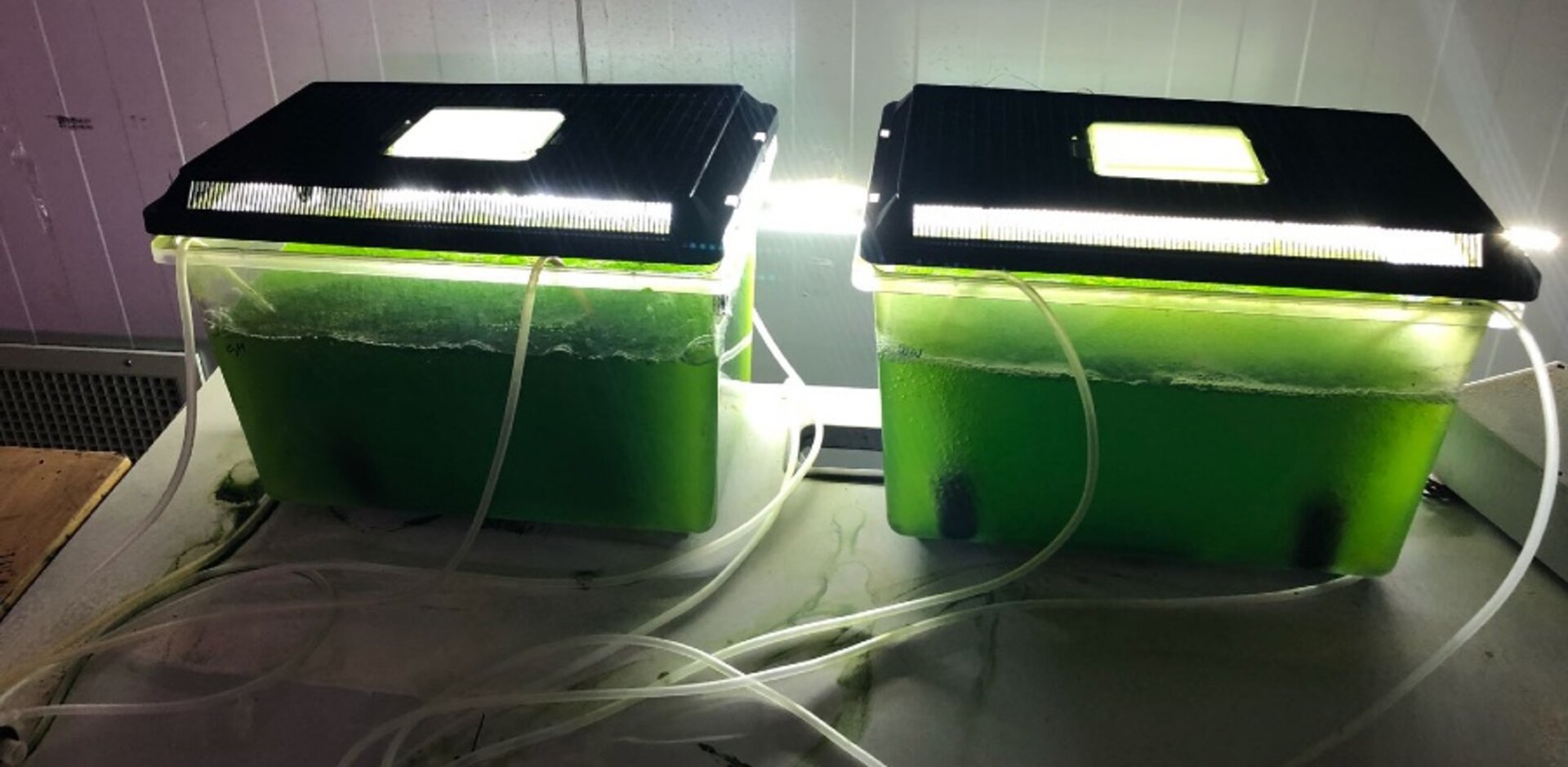Researchers hope super algae will combat superbugs

Researchers at Glasgow Caledonian University (GCU) have discovered a unique type of algae that could help reduce the risk of antimicrobial resistance being spread through rural waterways and the wider environment.
Thousands of people living in Scotland’s rural areas rely on septic tanks and basic wastewater treatment plants, which creates a higher risk of antibiotics being discharged into the environment.
The presence of these antibiotics in the environment increases the spread of resistance genes in different types of microorganisms.
The World Health Organization has listed Antimicrobial resistance (AMR) as a top 10 global health threat and it is believed the unchecked rise and spread of AMR could result in the premature deaths of 10 million people a year by 2050.
AMR happens when microorganisms, such as bacteria, fungi, viruses, and parasites, change when they are exposed to antimicrobial drugs, such as antibiotics, antifungals, antivirals, antimalarials, and anthelmintics.
But now GCU has been awarded a prestigious Medical Research Scotland PhD Studentship to explore how innovative microalgae technology could reduce the threat of antimicrobial resistance genes in Scotland's rural wastewater treatment plants.
Work previously undertaken at GCU with Scottish Water has demonstrated the potential of the microalgae Chlamydomonas acidophila - a novel species which requires light levels much lower than normal - to remove the antibiotics erythromycinand clarithromycin from waste-water effluents.
Project supervisor, Dr Ania Escudero, said: “The primary driver for AMR development in the environment is the presence of antibiotics in bodies of water.
“Humans excrete a percentage of the prescribed antibiotics they take. This results in undegraded antibiotics entering the aquatic environment through wastewater treatment-plant effluent. This is a key environmental pathway for these compounds. We need to break this pathway to improve health and wellbeing.”
Dr Escudero says 97% of Scotland’s landmass is defined as rural. Close to 20% of the population living in rural areas typically have only septic tanks or basic wastewater treatment plants. These plants usually do not have any tertiary treatment, so the antibiotics and AMR-carrying bacteria present in the effluent are discharged into the environment.
She said: “This project aims to assess the occurrence of AMR genes in Scottish rural wastewater treatment plants and investigate the use of an innovative microalgae technology as an alternative to reduce their threat.
“The microalgae we work with has already shown to be able to remove antibiotics from wastewater, so it might be a solution for reducing the AMR pressure in the environment.”
The University will build on its earlier work with Scottish Water during this four-year project. The funded studentship, which has been awarded to Deborah Reid, will be supervised Dr Escudero, as well as Dr Colin Hunter, Dr Janice Spencer, and Tamsyn Kennedy, Research and Innovation Environment Programme Manager at Scottish Water.
Dr Escudero added: "The Medical Research Scotland PhD Studentship is highly competitive and important, so we are very proud to have secured it at GCU.”
Medical Research Scotland is Scotland’s largest funder of PhD studentships. It awards funding to projects addressing a question of relevance to human health or disease.
